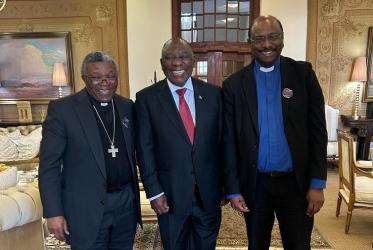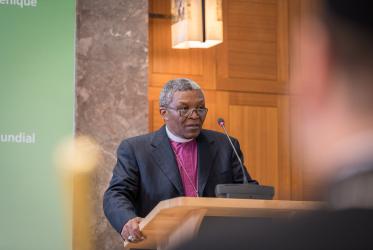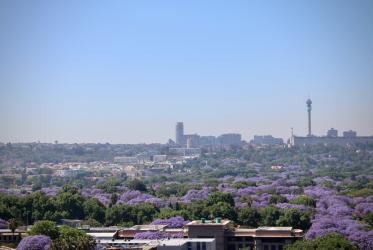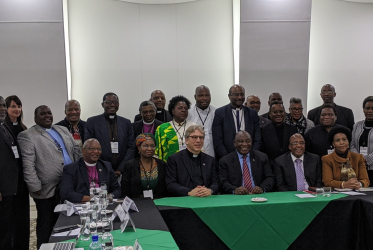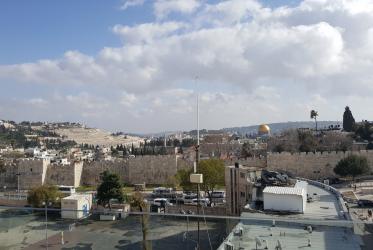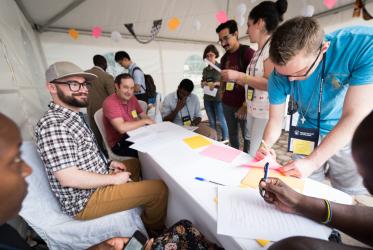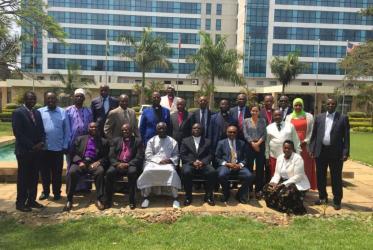Displaying 1 - 20 of 40
WCC delegation meets with South African President Ramaphosa
09 December 2019
Churches in southern Africa stand against violence, xenophobia
10 October 2019
‘Sokoni’ transforms marketplace into mission
13 March 2018
Indigenous youth want their voices heard
08 March 2018
GETI students plant trees, in service for greener future
07 March 2018
#WCC70: Churches as “freedom agents”
12 February 2018
